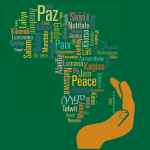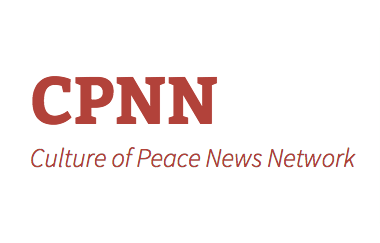REFORMING THE UNITED NATIONS
Since its creation over 70 years ago, the United Nations has been the hope of mankind “to save succeeding generations from the scourge of war.” But more and more, we are losing hope that in its present form it can succeed. This was especially evident in recent weeks when the great powers did not bother to send high-level delegations to the UN’s Humanitarian Summit despite the fact that 60 other countries sent their heads of state. While Germany was represented by its Chancellor Angela Merkel, the other great powers were essentially absent: Canada, France, Italy, Japan, the United Kingdom, the United States, Russia and China.
Therefore, it is not surprising that there is a rising chorus of demands for reform of the United Nations.
The most dramatic and far-reaching demand comes from Africa. This month the Pan-African Parliament, with representives from the 54 countries of Africa, has called upon the African Union to support its demand for a new UN body, a United Nations Parliamentary Assembly. The Parliament’s President explained that "It is long overdue that 'We, the Peoples,' as the UN Charter begins, have more say in global affairs. For this purpose, a UNPA needs to be established." This could become a powerful voice for peace. Instead of reflecting the policies of Member States with their military budgets and military policies, the proposed Assembly would be composed of representatives of bodies directly elected by the people and without direct responsibility for military institutions.
Another call for extensive reform comes from a group including former UNESCO Director-general Federico Mayor. Their joint declaration calls for a "new UN System" with a General Assembly of 50% of States representatives and 50% of representatives of civil society, and adding to the present Security Council and Environmental Council and a Socio-Economic Council. In all cases, no veto but weighted vote.
Many calls for reform consider that the present Security Council, with veto powers by the five Permanent members, the victors of World War II, is outmoded and ineffective in dealing with today’s global problems.
There are ongoing meetings of the Intergovernmental Negotiations on Security Council Reform, but they are complicated by rivalries among the Member States. At the most recent meeting at the beginning of May, India called for additional Permament members, including themselves, Brazil, Japan and Germany, thus including the losers as well as the winners of World War II. But immediately there were objections from India’s rival Pakistan and from Japan’s rival North Korea, as well as from another group of 13 countries led by Italy. Another proposal was put forward by Ireland for a new category of Security Council members with an 8 year term. They proposed 6 seats in this category, with 2 each from the African and Asia-Pacific group, and 1 each from WEOG (Western Europe and Others Group) and GRULAC (Group of Latin American and Caribbean Countries).
At the recent Humanitarian Summit, the Arab League, which consists of 22 member states, including Algeria, Egypt, Iraq, Jordan, Qatar and Saudi Arabia, called for limitation on the veto power of the Permanent Security Council Members, echoing a similar demand by Turkish President Erdogan. This, too, was complicated by inter-state rivalries as their remarks were directed only against the use of the veto by Russia with regard to the war in Syria.
The Elders, the group of former heads of state and international agencies that was formed several years ago around Nelson Mandela, has made a series of recommendations regarding reform of the Security Council. They call for a new category of Council members with longer terms to counter-balance the five Permanent members, a pledge to restrict the use of their veto and more involvement of the civil society,
Another proposal of the Elders is for a more independent UN Secretary-General. This proposal is echoed in conclusions of the recent United Nations High Level Thematic Debate on Peace and Security, and it is already being implemented to some extent in new procedures to choose the next Secretary-General.
But the question remains: are these proposals radical enough to enable the UN "to save succeeding generations from the scourge of war ?" In the view of the CPNN coordinator, we need a more radical approach; see his blog.

